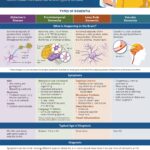Understanding Intestate Succession: A Closer Look at Probate Code §6454
Probate is a complex and often daunting aspect of the legal world, but it plays a crucial role in ensuring the fair distribution of assets when someone passes away without a will. When it comes to intestate succession – the process by which the estate of a deceased person is distributed when there is no will – it’s essential to be aware of the intricate details and any legal developments that may impact this area of law.
One such recent development is the case of Estate of Martino, filed on October 18, 2023, in the Fourth District, Div. One, with a citation as 2023 S.O.S. 3801. This case sheds light on an interesting facet of intestate succession, specifically related to stepchildren’s rights to inherit.
Probate Code §6454: Not an Exclusive Path
Probate Code §6454 is a critical section of California law, but it’s important to note that it does not stand alone. It’s crucial to recognize that this code section does not foreclose other statutory methods available for a stepchild to establish their right to intestate succession.
The Role of Presumed Parentage
Probate Code §6453(a) defines natural parentage for the purpose of intestate succession, and it includes presumed parentage that is not rebutted under the Uniform Parentage Act. In other words, a stepchild may establish a right to intestate succession under certain conditions.
Family Code §7611(d): A Presumption of Natural Parentage
Under Family Code §7611(d), a presumption of natural parentage can be created if “The presumed parent receives the child into their home and openly holds out the child as their natural child.” This is a significant development in the context of stepchildren and intestate succession.
The Implication for Stepchildren
In simpler terms, stepchildren who have been received into the home and openly recognized as a natural child by the presumed parent may have a legal basis for claiming their rightful share of the intestate estate. This is a substantial step forward in ensuring that stepchildren are not unjustly excluded from inheritance, and it provides them with a statutory mechanism to establish their rights.
Conclusion
Estate of Martino serves as a valuable reminder that the world of probate law is continuously evolving, with new cases and interpretations shaping the landscape. Stepchildren now have a path to establish their right to intestate succession by meeting the criteria set forth in Family Code §7611(d), and this development is an important stride toward fair and equitable inheritance rights for all.
If you require expert legal guidance in probate matters, don’t hesitate to contact Raxter Law at (951) 226-5294









